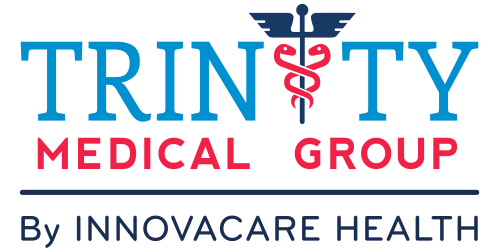Five Screenings Everyone Over 50 Needs
Part of staying healthy means taking preventive steps to stay ahead of potential health issues. Many illnesses and diseases don’t manifest into physical symptoms until they have progressed significantly. But fear not! There are simple diagnostic tests that can pick up early indicators of many diseases, allowing you to treat these conditions as soon as they are detected and continue living a long, healthy life.
Here are five of the most important screenings everyone over 50 needs to have done regularly.
Colon Cancer Screening
A colonoscopy is the standard diagnostic test that screens for colon cancer. Your doctor inserts a tube into the colon to look for polyps and other abnormal tissue or growths. Doctors usually take biopsies (samples of tissue) during this procedure to be analyzed for potential health risks.
The American Cancer Society recommends that individuals that are not high-risk for colon cancer have a screening after they turn 45 and then once every 3-5 years that based on their medical provider’s recommendations.
Mammogram
According to the CDC, each year in the United States, over 245,000 women get breast cancer and more than 40,000 women die from the disease. A mammogram is the screening tool used to find cancerous growths in breast tissues. Contrary to popular belief, even though it’s more common in women, breast cancer can also affect men.
Most women are aware of the need to perform breast self-exams monthly to monitor for any signs of lumps, however a lot of cancerous growths are deeper in the breast tissue and may not be detected by a manual exam. This is where regular mammograms become necessary. Mammograms can detect tumors at a much earlier stage, allowing for prompt diagnosis and treatment.
Eye Exams
Eyesight can decline rapidly as you age. And the older you get, the more at-risk you are for developing cataracts, glaucoma, or macular degeneration. You should see an ophthalmologist every year to determine your vision needs (if you need glasses or corrective eyewear) and to screen for these conditions as well as examine the back of your eyes and detect any early stage cancerous or benign growths.
For Men Only – Prostate Exams
Prostate cancer affects 1 in 9 men in the United States, according to the Prostate Cancer Foundation. Depending on your risk factors, prostate exams may have already begun in your forties. If you’re over 50, speak to your medical practitioner about when your next prostate cancer screening will be. Prostate cancer is generally detected with a PSA blood test and a physical exam and is considered a very treatable cancer if caught early.
For Women Only – Pelvic Exams
According to the American Cancer Society, cervical cancer was once one of the most common causes of cancer death for American women, dropping markedly with an increase in use of pap smears. Most doctors recommend a pelvic exam with a pap smear every year, with those at a lower risk because of previous screening results requiring a little less frequently. Be sure to speak to your physician, gynecologist, or other health care practitioner about what schedule you should use for your pelvic health screening.
Skin Check
One out of five Americans will develop skin cancer by age 70, according to the Skin Cancer Foundation. There are four different skin cancers that we risk getting as we age: basal cell carcinoma, squamous cell carcinoma, melanoma, and Merkel cell carcinoma. The most serious of these are melanoma, which can spread rapidly to major organs. Even melanoma is considered highly treatable if caught early, which makes it imperative that you put an annual skin check by a dermatologist on your list of required annual exams.
Talk to your health care practitioner about other exams they may recommend for you, as well as additional information on these important diagnostic screenings.
Resources:
Skin Cancer Foundation: https://www.skincancer.org/skin-cancer-information/
Prostate Cancer Foundation: https://www.pcf.org/
The National Breast Cancer Foundation: https://www.nationalbreastcancer.org/about-breast-cancer/early-detection/breast-cancer-resources
The American Cancer Society Information on Colorectal Cancer:
The CDC Fact Sheet on Breast Cancer:
https://www.cdc.gov/cancer/dcpc/resources/features/breastcancerawareness/index.htm
________________________________________________________________
This article provides information on general health and health-related subjects. The information and other content provided by this article, or in any linked references, is not intended as a substitute for professional medical expertise and should not be used to replace the advice of your own healthcare provider.
If you or any other person under your care has a medical concern, consult with your health care provider or seek professional medical treatment. Do not disregard professional medical advice or delay in seeking treatment because of something read in this article or in any linked materials.
If you think you are experiencing a medical emergency, call your doctor or dial 911 for immediate emergency services.

 Call Lakeland
Call Lakeland
